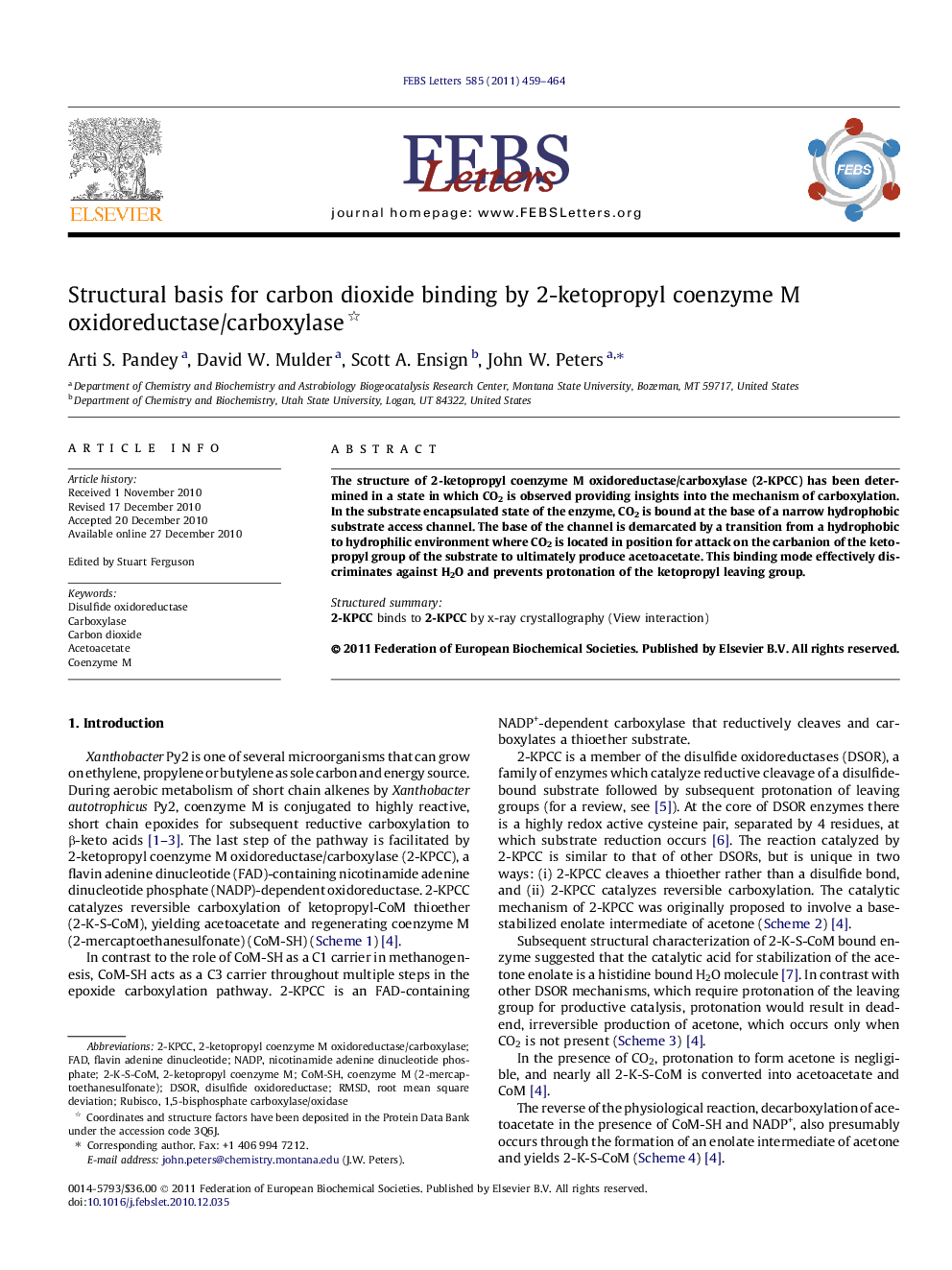| Article ID | Journal | Published Year | Pages | File Type |
|---|---|---|---|---|
| 2048157 | FEBS Letters | 2011 | 6 Pages |
Abstract
The structure of 2-ketopropyl coenzyme M oxidoreductase/carboxylase (2-KPCC) has been determined in a state in which CO2 is observed providing insights into the mechanism of carboxylation. In the substrate encapsulated state of the enzyme, CO2 is bound at the base of a narrow hydrophobic substrate access channel. The base of the channel is demarcated by a transition from a hydrophobic to hydrophilic environment where CO2 is located in position for attack on the carbanion of the ketopropyl group of the substrate to ultimately produce acetoacetate. This binding mode effectively discriminates against H2O and prevents protonation of the ketopropyl leaving group.Structured summary2-KPCCbinds to 2-KPCC by x-ray crystallography (View interaction)
Keywords
Related Topics
Life Sciences
Agricultural and Biological Sciences
Plant Science
Authors
Arti S. Pandey, David W. Mulder, Scott A. Ensign, John W. Peters,
